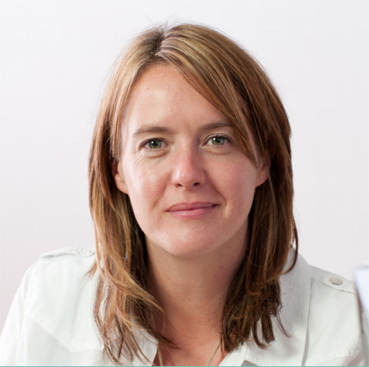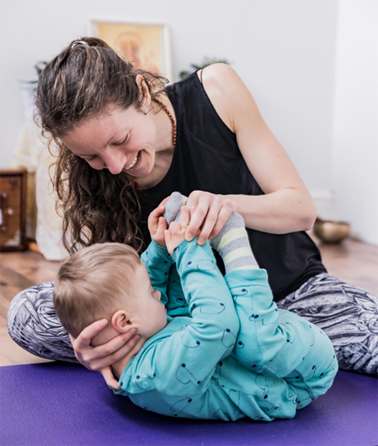Schools like to hang on to their pupils until they are 18. This has been a bugbear for FE colleges for many years as they feel they do not get a fair hearing. Schools claim a closer personal relationship with their students, better pastoral support and argue that they have a good reputation when it comes to getting university places.
Things have changed dramatically in the last year or so. Just this week, Sheffield Hallam announced it is suspending its degree in English Literature; last week it was announced that there will be fewer places for medical students this year. Maybe it is time to reconsider. Why would young people struggle to get one of a decreasing number of uni places and rack up enormous debts when there are other options?
On 20 June 2022, the government issued its consultation on revised statutory guidance on access to schools for education and training providers. It will enforce a legal requirement, ‘making sure that all secondary schools open their doors to other education and training providers.’
Baker Dearing Education Trust chief executive, Simon Connell, points out that with the introduction of T Levels young people want to know more about the technical options on offer from UTCs, colleges, and training providers, in concert with employers. He believes that ‘the department ought to come down hard on schools who try to cheat pupils and providers by using pre-recorded videos or simply distributing literature on technical options.’
UTCs offer a totally different education as Christopher Simpson found out.
He is now an IT Systems Administrator with Z-Tech Control, a company that provides specialist electrical, control and instrumentation support to the UK’s water, power and rail industries. They funded him to do a degree level apprenticeship in Digital Technologies.
‘I would not have got this apprenticeship if I hadn’t gone to Greater Peterborough UTC,’ he said. ‘At my school the only path was university. I found this difficult as I could never truly picture myself there. The way they taught at the UTC really helped ground what we were learning in reality. This feeling was reinforced by the near constant involvement by sponsors so we knew we were learning something that was useful, rather than an abstract concept that would never see the light of day. GPUTC gave me a chance to see and connect with employers and find what I wanted to do.’
Read more bout the consultation here. The closing date for responses is 25 July 2022.

 Today March 16th 2019 is Disabled Access Day.
Today March 16th 2019 is Disabled Access Day. in England, Wales, Northern Ireland and Scotland including Seaview Primary School in Belfast, Ysgol Gyfun Gymraeg Bro Edern in Cardiff, and Acklam Grange Teaching School in Middlesborough. These pioneering schools, and others, will be helping to launch Edtech50 Schools and to spread the word across the whole of UK.
in England, Wales, Northern Ireland and Scotland including Seaview Primary School in Belfast, Ysgol Gyfun Gymraeg Bro Edern in Cardiff, and Acklam Grange Teaching School in Middlesborough. These pioneering schools, and others, will be helping to launch Edtech50 Schools and to spread the word across the whole of UK. Goddard said: “It is a key moment for edtech. Earlier this year, the Secretary of State for Education was clear that the power of technology could provide significant support to help students learn, reduce teachers’ workload and save money. There is great potential for edtech to help make a difference but it needs to be the right technology, implemented effectively, and with good support for staff. The Edtech 50 wants to shine a spotlight on the schools leading the way, which we hope can inspire other schools.â€
Goddard said: “It is a key moment for edtech. Earlier this year, the Secretary of State for Education was clear that the power of technology could provide significant support to help students learn, reduce teachers’ workload and save money. There is great potential for edtech to help make a difference but it needs to be the right technology, implemented effectively, and with good support for staff. The Edtech 50 wants to shine a spotlight on the schools leading the way, which we hope can inspire other schools.â€ Mark Anderson said: “I work with schools daily to help them get the very best they can from the edtech they have access to. The Edtech 50 Schools tour is about shining a spotlight on the schools in the UK that are doing amazing things every day to support, enhance and transform teaching and learning with technology to help children get the very best out of our education system.â€
Mark Anderson said: “I work with schools daily to help them get the very best they can from the edtech they have access to. The Edtech 50 Schools tour is about shining a spotlight on the schools in the UK that are doing amazing things every day to support, enhance and transform teaching and learning with technology to help children get the very best out of our education system.â€ Looking for awards to celebrate the achievement of some of those who work with children and young people?
Looking for awards to celebrate the achievement of some of those who work with children and young people? success in many areas in life. The working memory (which is part of the
success in many areas in life. The working memory (which is part of the 

 The MahaDevi Centre offers 100 therapy sessions per week in the centre as well as treatment in schools, day centres, nurseries, hospitals and children hospices across London.
The MahaDevi Centre offers 100 therapy sessions per week in the centre as well as treatment in schools, day centres, nurseries, hospitals and children hospices across London. St John Ambulance believes that every young person should have the chance to learn vital lifesaving skills. Their research shows that seven out of 10 pupils wouldn’t know what to do if someone they knew was hurt. Children want to learn these new skills and parents are keen too. In fact, 95% of parents agree that these skills should be taught to secondary school pupils.
St John Ambulance believes that every young person should have the chance to learn vital lifesaving skills. Their research shows that seven out of 10 pupils wouldn’t know what to do if someone they knew was hurt. Children want to learn these new skills and parents are keen too. In fact, 95% of parents agree that these skills should be taught to secondary school pupils. Teresa Pearce, Labour Party MP for Erith and Thamesmead, proposed an Emergency First Aid Education Bill so that first aid, including CPR, would be taught in every state-funded secondary school.
Teresa Pearce, Labour Party MP for Erith and Thamesmead, proposed an Emergency First Aid Education Bill so that first aid, including CPR, would be taught in every state-funded secondary school. here is loads of good stuff for people with dyslexia: Debra Charles is doing one of the keynotes. She is
here is loads of good stuff for people with dyslexia: Debra Charles is doing one of the keynotes. She is As someone who uses Autocorrect on Word and types entirely in abbreviations, I am keen to see Global AutoCorrect which works with all programs from presentation software to emails, the web and social media. It frustrates me when I have to type every letter on Facebook. Maybe now I won’t have to.
As someone who uses Autocorrect on Word and types entirely in abbreviations, I am keen to see Global AutoCorrect which works with all programs from presentation software to emails, the web and social media. It frustrates me when I have to type every letter on Facebook. Maybe now I won’t have to.